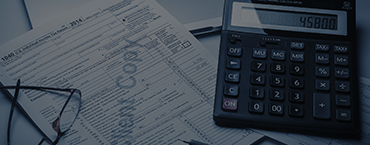A personal pension plan helps you save money for retirement and is available to any United Kingdom resident who is between the ages of 16 and 75 (Children under 16 cannot start a plan in their own right but a Legal Guardian can start one on their behalf). You, in conjunction with your adviser, choose the pension provider and make the arrangements for paying the contributions to the plan.
You can start a personal pension even if you have a workplace pension or if you’re self-employed and don’t have a workplace pension. You don’t have to be working to take out a Personal Pension Plan and you can also provide a Personal Pension Plan for your spouse/partner or your child/children.
When you contribute to a Personal Pension plan, your money is invested by the pension provider (usually an insurance company) to build up a fund/pension pot over a number of years.
If you’re a basic rate taxpayer, your pension provider will claim back Income Tax at the basic 20 per cent rate on your behalf on the contributions you make and add it to your pension pot. Higher rate taxpayers claim the additional rebate through their tax returns.
The total amount (the ‘annual allowance’) you or your employer can contribute to a defined contribution personal pension scheme, or schemes, is limited to £40,000* per annum, although the allowance can be reduced dependent on your adjusted earnings. If you contribute more than that you will pay a tax charge. Your pension is also subject to a ‘lifetime allowance’ which is the total value of pension savings you can have before incurring a tax penalty. This figure is currently £1,073,100*.
Most schemes allow you to withdraw 25% of your fund tax-free from age 55 onwards. Subsequent withdrawals are subject to income tax.
Although most personal pension schemes specify an age when you can start withdrawing benefits from your personal pension (usually between 60 and 65) you are allowed to do that from age 55 if you wish. You don’t have to stop work to draw benefits from your plan.
If you die before the age of 75 and haven’t purchased an annuity, your beneficiaries can inherit the entire pension fund as a lump sum or draw an income from it completely free of tax. If you’re over 75 years of age when you die, there will be tax to pay on any withdrawals made by the recipient of your fund.
*Tax year 2020/2021
A PENSION IS A LONG TERM INVESTMENT, THE FUND VALUE MAY FLUCTUATE AND CAN GO DOWN. YOUR EVENTUAL INCOME MAY DEPEND UPON THE SIZE OF THE FUND AT RETIREMENT, FUTURE INTEREST RATES AND TAX LEGISLATION.
INFORMATION IS BASED ON OUR CURRENT UNDERSTANDING OF TAXATION LEGISLATION AND REGULATIONS. ANY LEVELS AND BASES OF, AND RELIEFS FROM TAXATION, ARE SUBJECT TO CHANGE.
National Employment Savings Trust (NEST)
Trafalgar International fully advised on, and managed the transfer of my UK held private pensions into QROPS.
Over a number of one to one personal meetings I received advice outlining the process and advantages of QROPS for someone living outside of the UK.
All my questions were answered and clarification provided when requested.
I have been very pleased with the service provided by Trafalgar International.
My husband and I have become fond of our adviser at Trafalgar International thanks to his untiring efforts with our financial.
They are trustworthy and honest and always gives us a thorough and professional service.
I would happily recommend Trafalgar International to anyone seeking financial advice.
Trafalgar International have been our Financial planners for some time and has always given a good service.
They always seems to have time for us and are both good at their job and a pleasure to deal with.

As professional financial advisers we can help you make informed decisions about your financial future, short, medium and long term.
Read more
A well prepared pension plan which is regularly reviewed should go some way to providing you with a reasonable level of income in your retirement.
Read more
Qualifying Recognised Overseas Pension Scheme
Read more